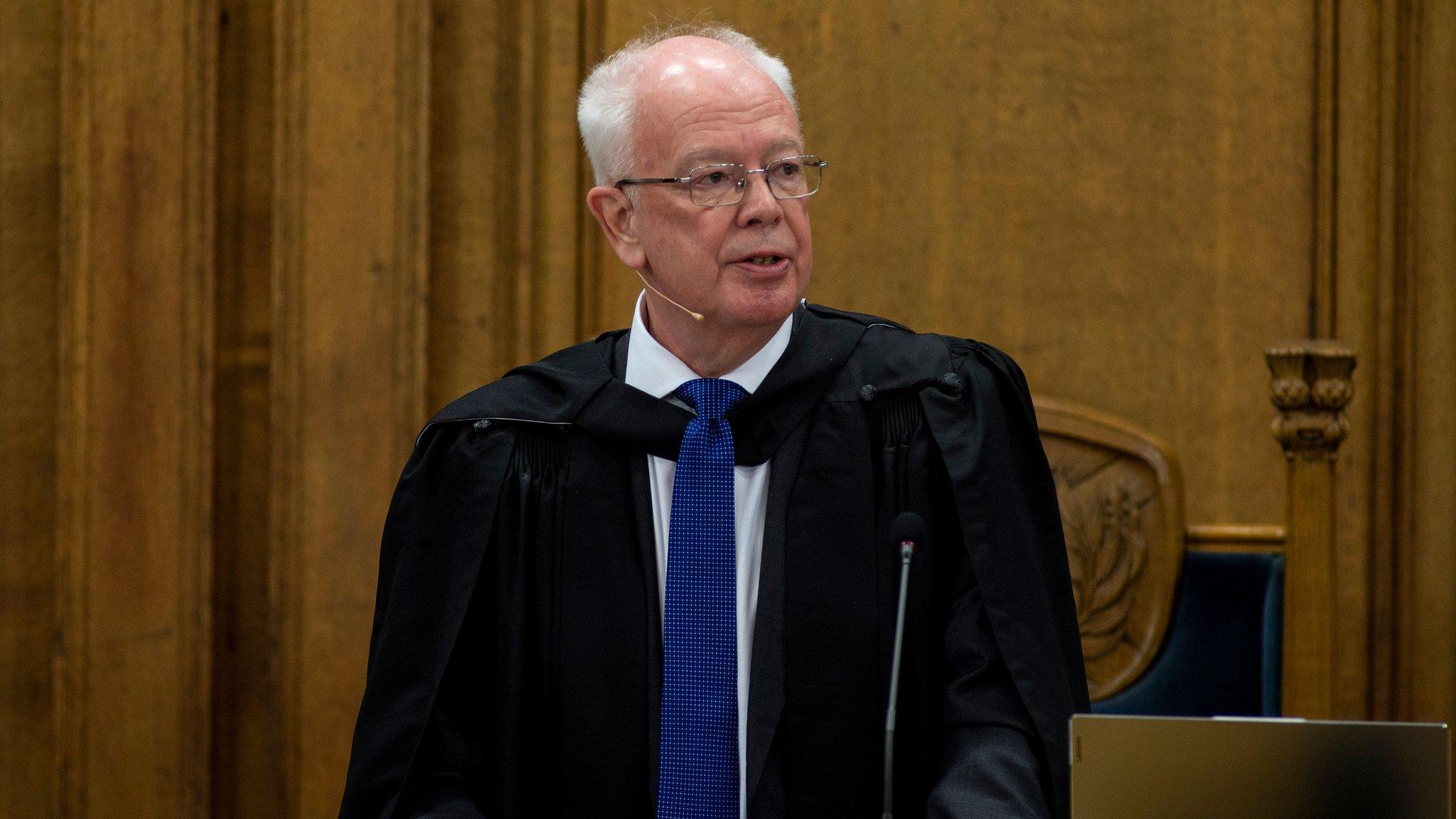The Church of Scotland assembles again but not like the old days
- Published
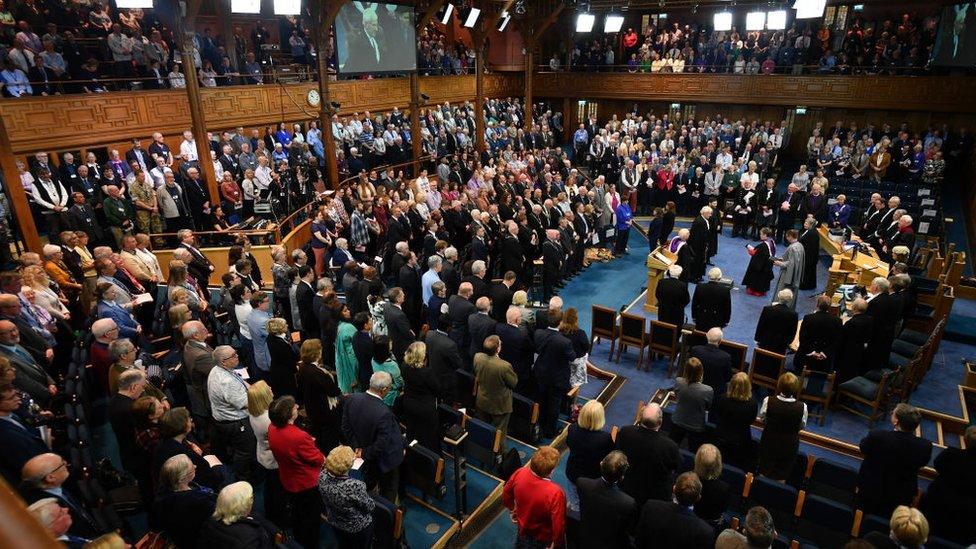
The General Assembly of the Church of Scotland has been held at the Mound in Edinburgh almost every year since 1560.
Last year the General Assembly of the Church of Scotland was cancelled for the first time in 300 years because of Covid but now it is back, although largely online.
It is perhaps a strange admission but I am quite a fan of the Kirk's annual gathering.
Over the years, I have been at more general assemblies than many ministers.
I suppose my attraction to it goes back to the days before the establishment of the Scottish Parliament in 1999, when the assembly was a key date in the diary for many would-be political reporters like me.
Back then, it was talked of as the nearest thing Scotland had to a parliament.
The Assembly Hall on the Mound in Edinburgh was the venue every May for a week of intensive deliberation of church matters and issues of the day.
The debates were wide-ranging and passionate.
Everything from nuclear weapons to the Iraq war and from famine in Africa to inner city poverty was on the agenda.
And other speakers from outside the body of the Kirk were often invited to address the assembly.
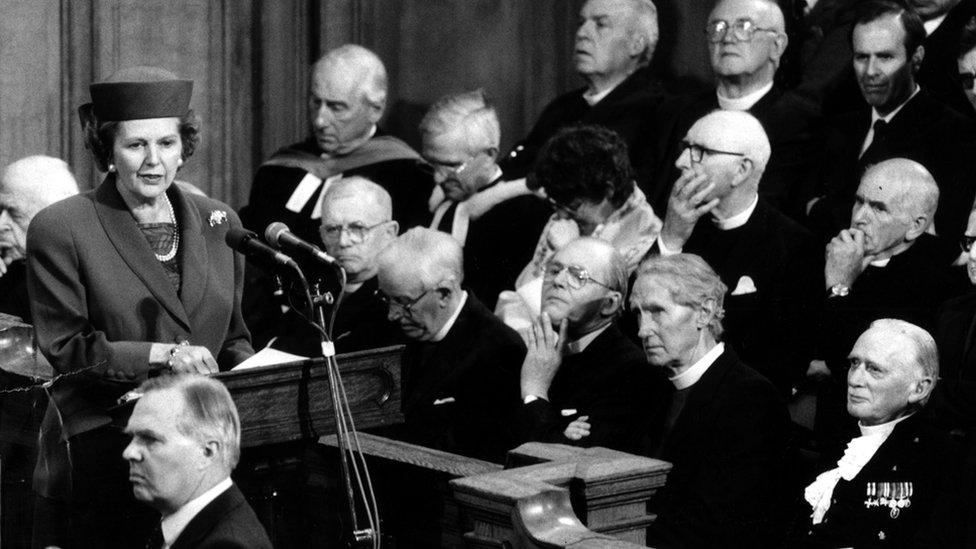
Prime Minister Margaret Thatcher addresses the General Assembly of the Church of Scotland on 21 May 1988.
In 1988, well before my time as a reporter, Prime Minister Margaret Thatcher walked up the steps to the assembly.
Her address was widely nicknamed "the sermon on the Mound" and was part of a long tradition of inviting challenging people to come and speak to the assembly. And in 1988, the then prime minister was certainly a challenging person.
She talked of how "Christianity is about spiritual redemption not social reform" and then spoke about personal responsibility, quoting St Paul saying "if a man will not work he will not eat". That must have caused a bit of unease in the hall.
In reply, the then moderator, the Very Rev Professor James Whyte, handed Mrs Thatcher various church reports: on poverty, housing and a fair social benefit system - enough said.
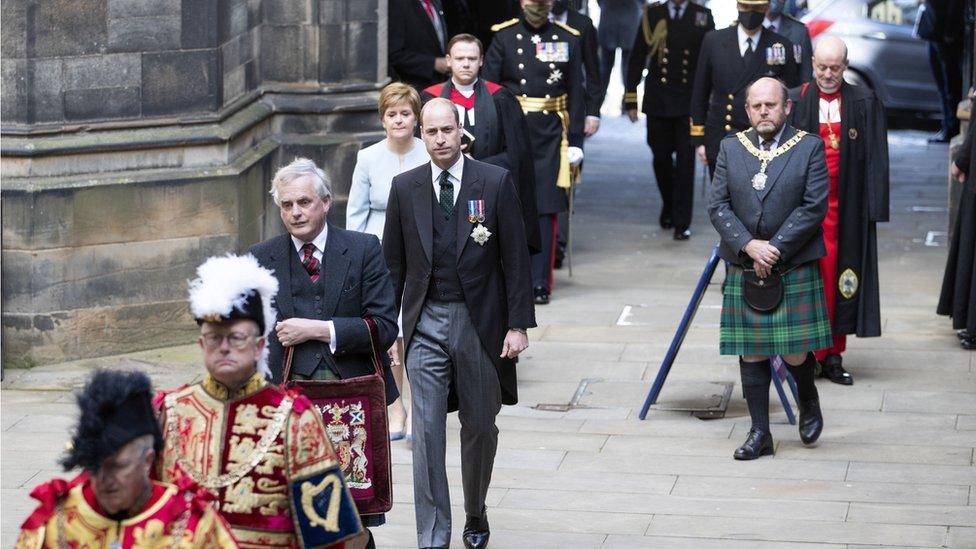
The Duke of Cambridge arrives to give a speech in his role as the Lord High Commissioner to the General Assembly of the Church of Scotland as the Kirk reassembles
It has been a bit different in recent years since the focus has shifted to the Scottish Parliament down the road at Holyrood.
But the general assembly debates have been no less spirited or relevant.
This year the opening ceremony itself is going to be very different.
The processing up the stairs past the statue of John Knox will be the same. And there will even be a member of the royal family - Prince William - appointed by the Queen to be the Lord High Commissioner - but there will be very few people.
And those that are there will be wearing masks.
But at least it's going ahead this year, in some form.
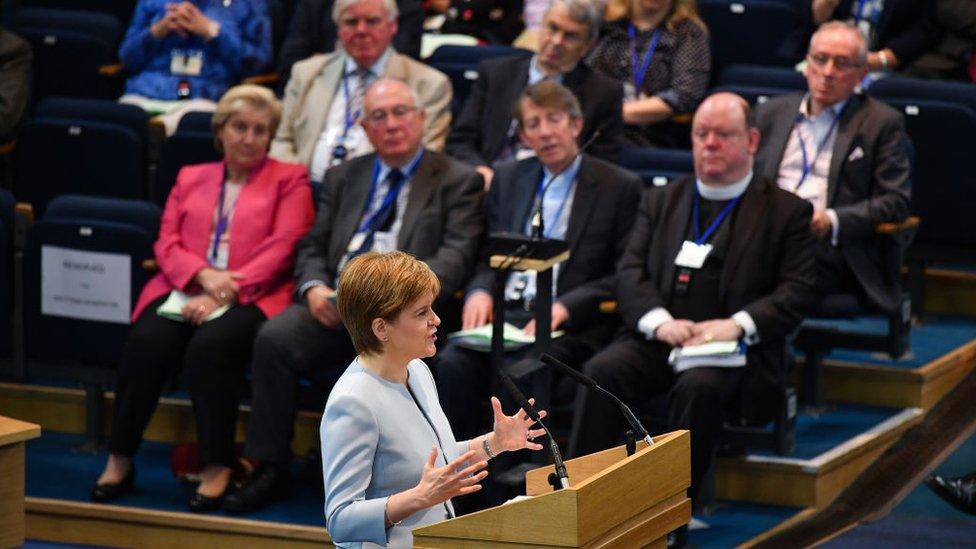
First Minister Nicola Sturgeon addressed the general assembly two years ago
Last year it had to be cancelled completely because of Covid. The last time it had been cancelled before that was 1689.
In May 2020, almost 1,000 people had been expected to come to Edinburgh from all over Scotland and from overseas. Not exactly a Covid-friendly gathering.
The Principal Clerk Rev Dr George Whyte told me then that these were exceptional times and people's health must come first.
He said cancellation was the only choice they could make in the circumstances
He could never have imagined that more than a year later he would have to consider if the same decision had to be made.
So this will be a largely online assembly, with very few people in the hall itself.
But at least the surroundings will be very familiar to this year's moderator, if a little empty.
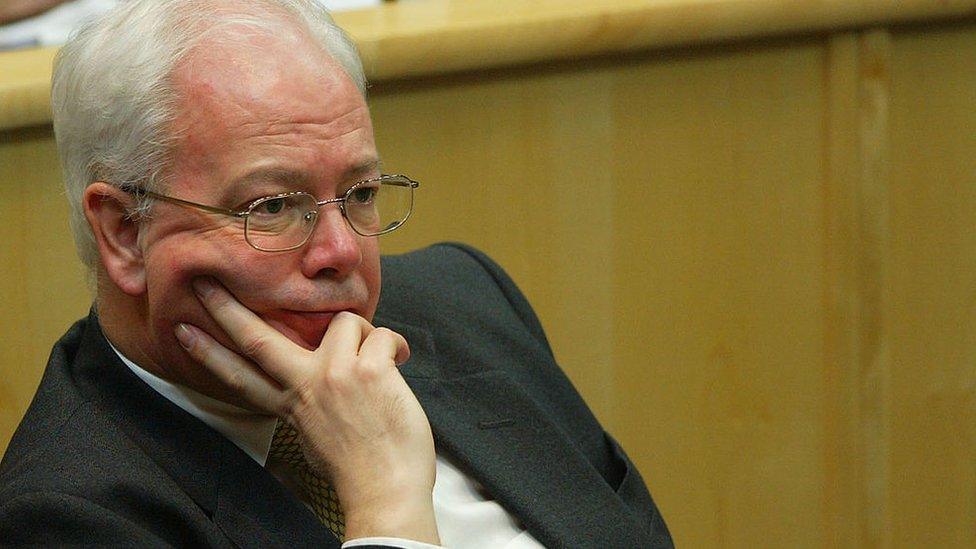
Jim Wallace previously sat in the Assembly Hall during his time in the Scottish Parliament
He is Jim Wallace, the former deputy first minister in the Labour/Lib Dem Scottish government.
He used to sit here when the Scottish Parliament moved in temporarily while the new building at Holyrood was being completed.
In normal times, as moderator, he would be looking out at the hundreds of commissioners - ministers and elders -who make up the Supreme Court of the Church of Scotland. Making laws and setting the agenda. But this is no normal Assembly year.
Online debates will be the norm. In-person discussions on the Mound will be very rare.
But by the wonders of technology, I'll have the chance to be at the General Assembly again.
Why change the habit of a journalistic lifetime?
This time though, I won't be leaving my own home.
- Published22 May 2021
